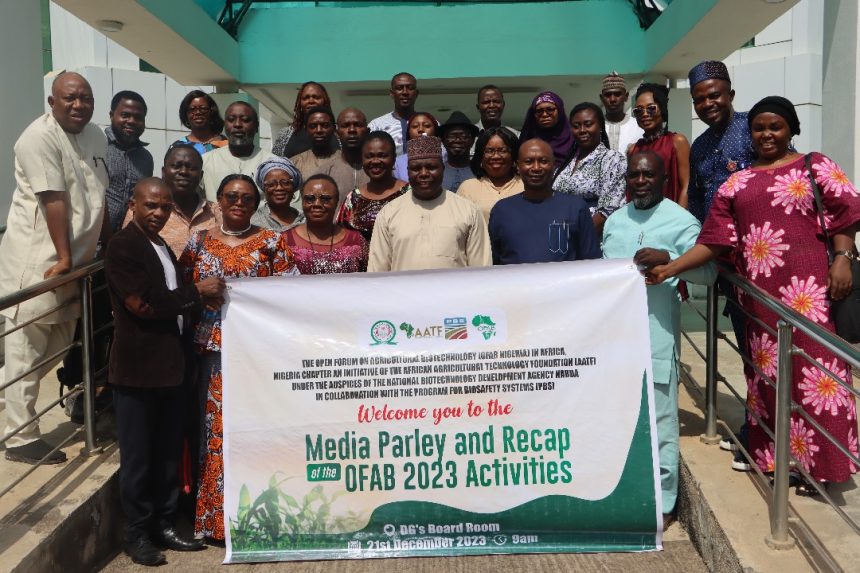Set to commercialize TELA Maize variety early 2024
By Onche Odeh
Nigeria’s biotechnology agency, the National Biotechnology Development Agency (NABDA) has taken remarkable steps towards firming up high level collaborations aimed at propelling Nigeria to the next level in the domestication and application of modern biotechnology, the agency’s Director General, Professor Abdullahi Mustapha has disclosed.
This is as the country’s National Varietal Release Committee is set commercially release TELA Maize, a genetically modified version of maize in the first quarter of 2024.
The biotechnology agency has also unveiled a strategic plan to raise the next generation of scientists with special interest in biotechnology.
The NABDA DG who disclosed these on Thursday during a press conference organised by the Open Forum on Agricultural Biotechnology (OFAB), Nigeria Chapter held in Abuja to intimate the media about some of the progress made by Nigeria in modern biotechnology said the agency is set to collaborate with the African Agricultural Technology Foundation (AATF) on research and development activities to reduce post-harvest crop losses and enhance nutrition security among Nigerians.
He said the possible areas of collaboration include training and capacity enhancement of researchers and joint research collaboration on vegetables, pearl millet and others.
Speaking further, he said, “NABDA has also taken a step towards tying a collaboration with South Africa in the area of Biotechnology. Only recently, I led a delegation to the South African High Commissioner and had fruitful discussions for the advancement of biotechnology in Nigeria. Similar conversations are ongoing with a number of other institutions.”
Speaking on how similar partnerships have benefited farmers in the country, Mustapha said, “NABDA, in collaboration with BIOCROPS Nigeria Ltd has revolutionized yam seedlings production, achieving its target of producing and distributing over two million yam seedlings to farmers.
“Great research progress has also been made towards the commercialisation of TELA maize, a collaborative research product of IAR, Zaria and the African Agricultural Technology Foundation (AATF) that is drought tolerant and insect resistant.”
Giving update on TELA Maize, he said, “TELA Maize is expected to be commercially released by the National Varietal Release Committee in 2024.”
Mustapha expressed delight at the pace and quality of the agency’s ongoing biotechnology research and development, strategic collaborations, and capacity-building programmes, which he said will continue to play a pivotal role in boosting food security, promoting sustainable farming practices, and fostering economic growth in Nigeria.
He said Nigeria’s efforts at making biotechnology the fulcrum for national development have garnered international recognition and solidified Nigeria’s position as a key player in the global biotechnology landscape, a compliment he said has also been extended to Nigerian scientists, and farmers who have been at the back end of the successes recorded by the country so far with biotechnology.
Using the occasion to speak on the next step in making biotechnology relevant in Nigeria, Mustapha said, “We are already thinking about the next level, which involves raising the next generation of scientists with special interest in Biotechnology through mentorship. In this regard, NABDA is working on a partnership with the National Board for Technology Incubation (NBTI) to commercialize research and development findings and harness indigenous talents.”
He, however, noted that, for the narrative about Nigeria’s food security to change, the science of biotechnology must be communicated effectively, adding, “we must not allow biotechnology to become subject of cheap political and public discourse.”





